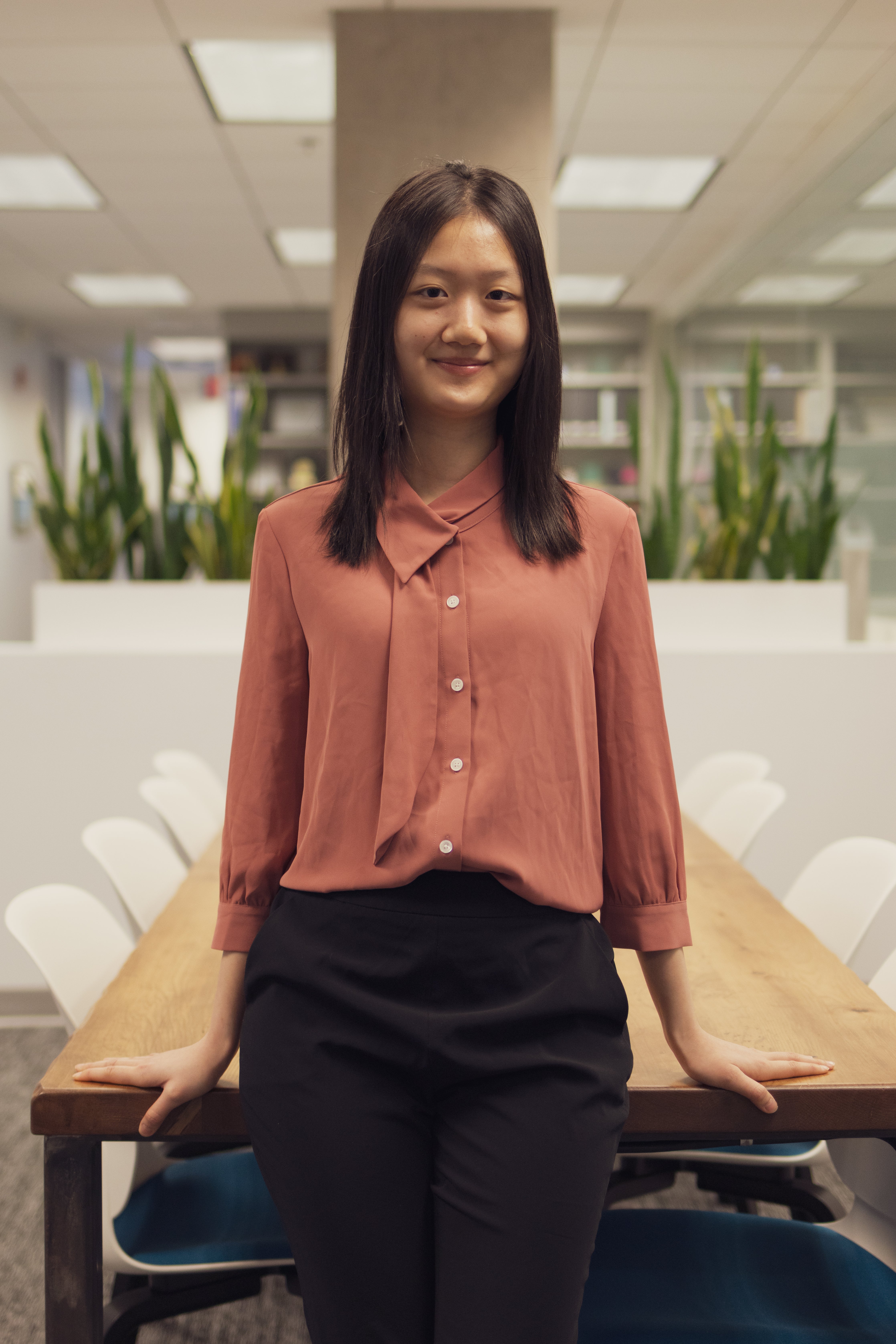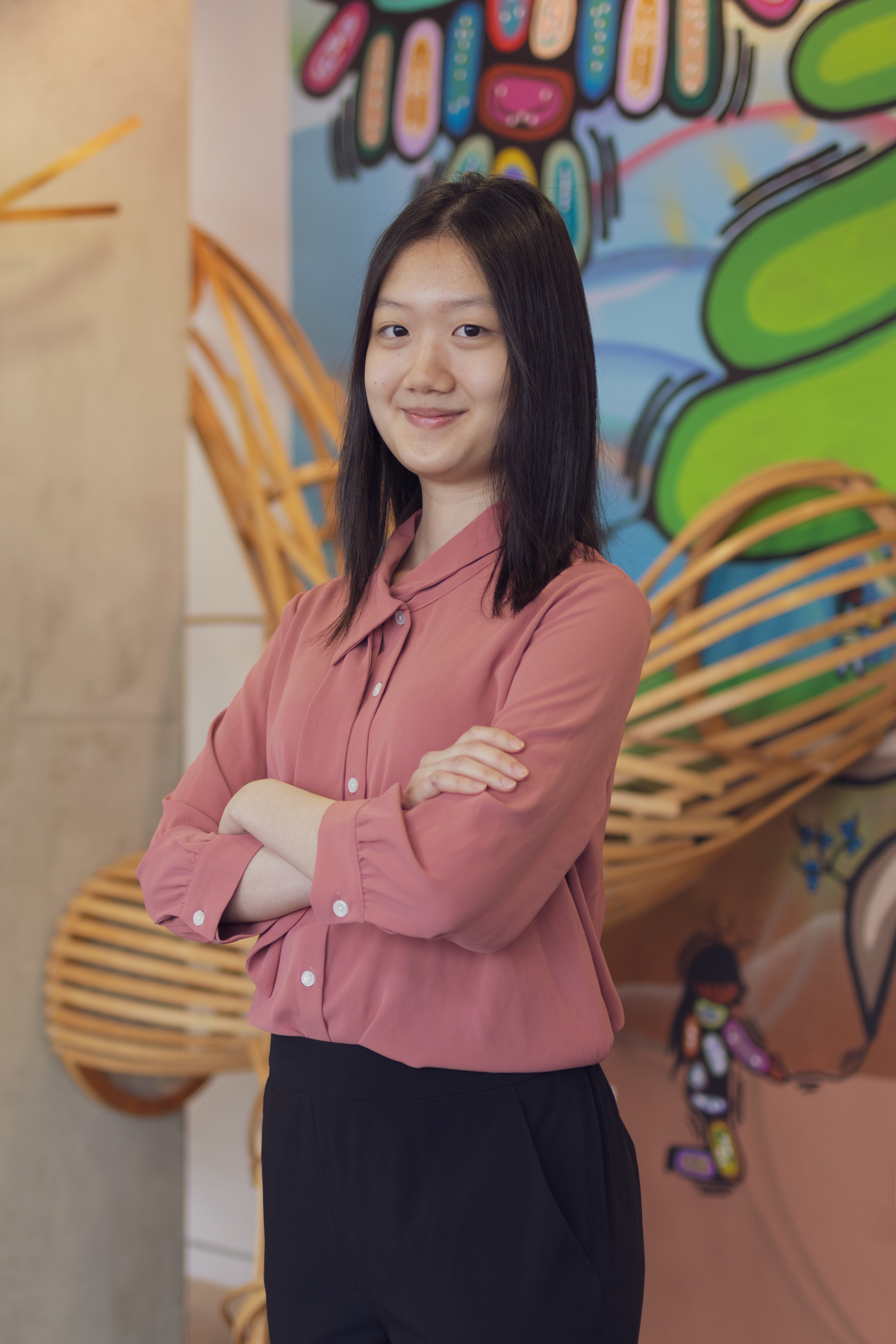Advancing space exploration: optimizing the next generation of space telescopes
Michelle Kao (she/her), a third-year Physics and Astronomy student, is the Faculty of Science Co-op Student of the Year as well as the 2024 Experiential & Work Integrated Learning Ontario (EWO) Co-op Student of the Year! Michelle made outstanding contributions at the National Research Council Canada, Herzberg Astronomy and Astrophysics Research Centre.
She received these awards in recognition of her incredible work on the CASTOR mission. Michelle developed tools to optimize the CASTOR space telescope’s observing programs, significantly improving survey efficiency and influencing key engineering decisions.

Kao received these awards for her incredible work on the CASTOR mission during her co-op work term at the National Research Council, Herzberg Astronomy and Astrophysics Research Centre.
Her work focused on survey implementation analysis, integrating industry specifications with scientific requirements to optimize observation programs. She developed tools to calculate observing efficiency, ultimately demonstrating how one survey could nearly double its effectiveness.
Michelle’s expertise spanned orbit geometry, satellite reference frames, signal-to-noise calculations, software engineering and telemetry analysis. Her independent research and technical contributions influenced key mission decisions, including spacecraft power feasibility and optimal downlink configurations.
Michelle also presented her findings to an international audience of engineers and scientists and impressed industry experts with her analytical approach and communication skills.
Q & A with Michelle
Where did your passion for astrophysics come from?
“As a child, I was always fascinated with our universe. It's just full of so many mysteries and beauty and I want to know all of them. I want to know the origin of our universe. So, it was pretty clear to me that astronomy was my future career.”
What is your proudest accomplishment during this work time?
“I think my proudest moments were being able to incorporate knowledge from different disciplines in the space industry and having the opportunity to collaborate with experts in different fields. These collaborations really pushed my view of the space sector.”
Where do you feel you made the biggest impact in your time at the National Research Council?
“My biggest impact during my co-op was that I was able to develop a software tool that can give the science team a big picture of how to make the space mission more efficient, which is important as we enter the phase A part of the mission where all mission designs must be finalized.”


How has co-op shaped or changed your understanding of the astrophysics industry?
“Co-op really opened my eyes to the industry side of astrophysics. I remember in first year when I entered the astrophysics program, I thought I was destined to become a professor and be in academia and do astronomy research. Which would be great, because I can satisfy my curiosity for the rest of my life, but then co-op showed me a different path for my astronomy skills.”
“Co-op showed me that there are so many cool innovations going on in the space industry. The space industry is such a wide category. The various disciplines that it covers have really made me realize I have so many options.”
“At the beginning of my studies, I was just thinking of answering my own questions, my own curiosity about the universe. But now, being able to work in the space industry and make contributions to a Canadian flagship space telescope mission made me feel valued.”
"I feel very rewarded and grateful to be able to make tangible contributions to our society.”
“Co-op also made me realize how versatile the skills that I learned in my astronomy program are. In astronomy we, through analyzing astronomy images and data, learn how to code in Python or do data management. We also have a really strong background in math and physics, and these skills are all transferable and very essential in the space sector.”
“That's what I realized with my co-op opportunities. That made me realize that even though I may not have some of the skills that are trained in the engineering department, as a scientist, as a physicist, I have these niche, essential skills that would be able to help give a different perspective.”
How would you define purpose?
“I want to spend my life being at the forefront of innovation. To me, purpose means being able to make contributions to society. Since my passion lies in astronomy and space, I hope I can make my contribution in the space sector.”
Why did you choose Waterloo?
“I chose Waterloo because of its proximity to Perimeter Institute of Theoretical Physics.”
“Because in high school I was passionate in wanting to know the origin of our universe, and what better way to explore that than to be a part of one of the world's best theoretical physics and cosmology institutions?”

“On top of that, it's definitely the co-op program that made me decide to apply to Waterloo. University is such a vital time for young adults like us to cherish the opportunity to figure out and explore what we want to do in life.”
“Co-op is only four months, so it doesn't take a lot of commitment. It's a great way for people to figure out what they want to do in life.”
What does receiving the Co-op Student of the Year award mean to you?
“Receiving the Co-op Student of the Year award gave me so much confidence in continuing what I'm doing right now, which is exploring the different sides of what the astronomy degree can bring to my career. Right now, I really want to try to explore how, as a scientist, as a physicist, I can use my skills to make contributions in the space sector.”
It will be a tough road. It's full of unknowns. Receiving this award really validates my intention of exploring something new and taking risks in my career.
What is one piece of advice you would give to current co-op students?
“Don't be scared to take risks. It's also okay to not know what you want, because that's what co-op is for. Explore who you are, explore your passion and explore what you can do for your career.”
Is there anyone you want to show appreciation for?
“I want to thank the CASTOR team for giving me so much support and helping me figure out my early career, because as a young adult, there’s so many unknowns. Having a caring and supportive mentor that can give you confidence in what you're doing and give you a platform to showcase what you're doing is so important.”

What’s next for you?
“The next step for me is to explore what I, as a physicist, can bring to an engineer-dominated field.”
“So, for my final co-op this summer, I wish to pinpoint exactly what skills, with my math and physics background, I can improve on that would be essential for space and satellite missions.”